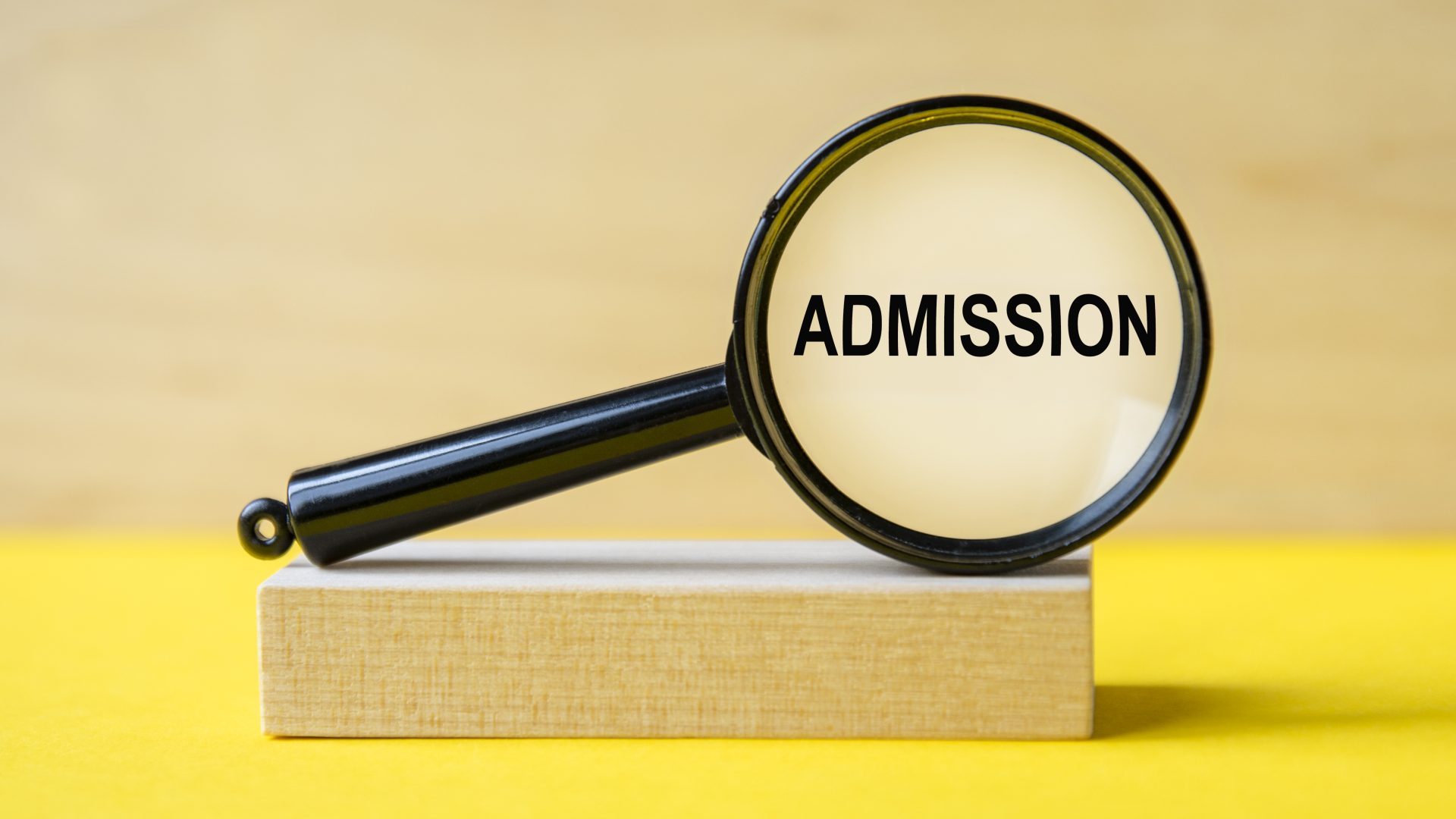Contents
Selecting the school for your child stands out as a crucial choice for any parent to make. When it comes down to it, most parents carefully examine each choice to guarantee that their child gets a quality education that matches their beliefs and goals. During the research process, it often becomes clear that private K–12 schools offer benefits, like smaller classes and tailored learning opportunities.
Private schools offer more than the usual advantages; they provide a range of enrichment that might catch you off guard! From teaching approaches such as Montessori and Waldorf to distinctive extracurricular activities and personalized learning methods – these factors can significantly impact your child’s growth and progress in unexpected ways. By exploring these options available at private schools with an open mind and understanding their unique features and benefits thoroughly can empower you to make a well-informed decision for your child’s educational journey.
Private schools serving students from kindergarten through grade frequently have smaller classes and give personalized attention to students along with a variety of academic subjects and a focus on building character and engaging in extracurricular activities, like sports and clubs. They might also offer programs that match the learning styles and interests of each student for a customized educational experience.
What Are K-12 Private Schools?

Private K through 12 schools offer an educational experience for students from kindergarten through 12th grade and operate independently of the public school system. They rely on funding sources such as tuition fees and donations to support their programs. Unlike schools that follow state set curricula private K, through 12 schools typically adopt specific educational philosophies or teaching methods to cater to their students’ requirements.
One instance is when a school adopts an approach that prioritizes hands-on learning and encourages self-directed engagement to nurture independence and critical thinking abilities in students—making it an appealing option for parents who appreciate progressive educational methodologies.
Types of Private Schools
The landscape of K-12 private schools is rich with variety, making it vital for parents to understand their options.
- Religious Schools: These institutions integrate religious teachings into their curriculum while offering academic subjects alongside spiritual development.
- Independent Schools: Not tied to any religious organization, these schools rely on independent boards of trustees to guide their missions and highlight distinctive philosophies catering to specific student demographics.
- Boarding Schools: Catering to those who require a more immersive experience, boarding schools provide both academic instruction and living accommodations, allowing students to reside on campus during the academic year.
- Specialty Schools: Focused on particular disciplines—be it artistic expression, scientific inquiry, or meeting special educational needs—these institutions invite students to dive deep into subjects they are passionate about.
Recognizing the different types of K-12 private schools empowers parents to make informed choices tailored to their children’s unique educational needs.
Each type of private school not only offers varied learning environments but also enables families to align their values and priorities with the best-suited educational system. Choosing the right fit for your child may require careful consideration of factors such as teaching styles, extracurricular opportunities, and community involvement—all essential components in crafting a fulfilling educational journey.
As families weigh these considerations, it’s essential to look at how these private institutions compare with other types of schooling options available in today’s educational landscape.
Comparing Private and Public Schools

When considering K-12 schooling choices for children’s educational needs, one important aspect that often comes up for discussion is the size of classes in schools. The smaller class sizes typically seen in schools are often highlighted as a major benefit. They provide not only greater personalized support from teachers but also help create a nurturing atmosphere where students are encouraged to participate and share their thoughts. With students present, in the classroom, it becomes easier for teachers to design customized learning experiences that cater to each child’s unique requirements. This approach consistently results in engagement levels and improved comprehension of the subject matter.
Nevertheless, it’s crucial to acknowledge that the size of a class isn’t an indicator of effectiveness. There are those who contend that in public schools with larger class settings, a top-notch education can be provided through effective teaching methods and robust support structures. This may pose difficulties in instances of overcrowded classrooms, where personalized attention could potentially be compromised.
The statistics back up the claims regarding class sizes: According to the National Center for Education Statistics, the average private school class has about 12.5 students compared to 16.2 students in public schools. This difference represents a significant opportunity for more focused interaction between educators and their pupils.
Private schools stand out from schools not just because of smaller class sizes but also due to their curriculum adaptability and the availability of enriching programs, beyond the basic academic, offered.
Private schools often have the freedom to create curricula that align with their vision or beliefs in a way that public schools may not always be able to due to financial limitations and standardized testing mandates. Therefore, parents have the option to choose schools that focus on areas, like STEM subjects (Science, Technology, Engineering, and Math), arts education, or bilingual programs that might not be as emphasized in schools.
Additionally, a lot of schools provide distinctive extracurricular programs that enhance the learning experience beyond regular academics. Whether its creative arts or community outreach efforts, these options can foster important life abilities, like teamwork and leadership, while also promoting innovation and critical thinking.
It’s worth noting that in public schools, such programs are often reliant on funding from governmental sources which can fluctuate significantly year-to-year.
Consequently, as you weigh the advantages of private versus public schooling options, evaluating adaptability within academic programs becomes increasingly important.
Understanding these benefits allows parents to grasp how each option aligns with their values and expectations for their child’s education. Each school type has distinct advantages; weighing them based on your child’s needs and aspirations leads toward making a well-informed decision that best supports their educational journey.
Continuing from here, we will explore the various academic offerings and curriculums available in these educational pathways.
Key Academic Programs and Curriculum

One of the most significant benefits of private schools is their ability to offer a wide array of tailored academic programs that cater to different learning styles and interests. This approach results in a curriculum that goes beyond the standardized model found in many public institutions, allowing students to explore subjects that excite them. In a private school environment, smaller class sizes mean teachers can provide personalized attention, adapting lessons to meet the specific needs of individual students, which enhances understanding and retention.
Advanced Programs
Numerous independent schools stand out for their Advanced Placement (AP)and International Baccalaureate (IB)curricula tailored to students aspiring for academic success. These courses do not push students to excel but also equip them with the skills needed for the demanding college coursework ahead.
In an AP Biology class, as an example, students learn about subjects such as gene therapy and also participate in practical lab experiments to experience how science is applied in real life situations.. Taking part in these high level courses gives students the opportunity to earn college credits during their high school years, which could help cut down on tuition costs and speed up their progress.
Just picture a school where students get to explore their love for science by taking classes such as biology or advanced robotics – not just reading about it but actually getting their hands dirty, with projects that make learning exciting and real! This tailored curriculum guarantees that students don’t just memorize facts but also put their knowledge into action in a way that boosts their thinking abilities and sparks creativity.
Arts and Extracurricular Activities
Private schools recognize the importance of a well-rounded education. The integration of arts and extracurricular activities enhances the educational experience by encouraging creativity and teamwork. Many institutions offer extensive music programs where students can learn how to play an instrument while developing skills in composition and performance.
Theatre productions are another hallmark of private school culture, where students can take on various roles—from acting to stage management—culminating in performances that build confidence and communication skills.
As one enthusiastic parent noted, “The arts program at my child’s private school has been phenomenal. She’s had the opportunity to participate in multiple theater productions, which wouldn’t have been possible at our local public school.”
The enriching environment fostered by these programs illustrates how private institutions create opportunities for holistic development, paving the way for profound educational experiences. This leads us into exploring how personalized attention enhances learning outcomes even further.
Benefits of Individualized Learning

One of the most distinctive advantages of attending a private K-12 school is the focus on individualized learning experiences, which can have profound effects on a student’s growth and academic performance. In a typical classroom, it can be challenging for teachers to address the diverse needs of every student. However, in private settings, educators often dedicate more time and resources to students, allowing them to foster an environment where tailored learning strategies are encouraged.
One-on-One Attention
Imagine a student who shines in mathematics yet finds reading to be a daunting task. In a private school, that student’s unique strengths can be recognized and harnessed, ensuring they receive focused attention in subjects where they need additional support. For instance, teachers can design personalized lesson plans that emphasize mathematical concepts while providing targeted reading interventions to improve literacy skills at the same time. This bespoke approach enables students to thrive at their own pace without feeling pressured to conform to a standardized learning timeline.
Specialized Support
Beyond one-on-one attention, private schools commonly offer specialized support systems that cater to students’ individual needs. Whether through tutoring or mentorship programs integrated into the daily curriculum, these services aim to address academic challenges head-on. Students may benefit from extra help during in-school learning hours or after-school enrichment programs tailored to strengthen specific areas such as reading comprehension or science inquiry.
Research from the U.S. Department of Education supports this notion, with findings indicating that individualized learning can boost students’ academic performance by up to 30%. It’s not merely about improving grades; it’s also about fostering a love for learning.
By capitalizing on these individualized learning opportunities, students are not only better equipped to tackle current challenges but also find themselves prepared for future academic endeavors. As we explore further, we’ll look into how families can successfully approach this intricate process of securing a place in these esteemed institutions.

Navigating the admissions process for K–12 schools is crucial for ensuring you make the best decision about your child’s education journey. Admittance can feel overwhelming, at a glance, but breaking it down into clear steps can make it much more approachable and less intimidating.
When applying to schools, it’s important to remember that they usually ask for a complete application package that includes academic records from your past schools and well-thought-out teacher recommendations, well as a personal statement or essay where you can share your aspirations with the school administrators to help them determine whether you would be a good match, for their institution.
According to the Privatschulprüfung, approximately 70% of private schools also require entrance testing such as the SSAT or ISEE. These tests can play a significant role in determining placement, so it’s wise to familiarize your child with the format and content of these exams as early as possible. Preparing in advance not only helps alleviate anxiety but also equips your child with strategies to perform their best.
Once you’ve tackled the application and testing, the next phase involves direct interaction with potential schools.
Interviews and Visits
After applying, families will often find themselves participating in interviews with both parents and students. This is a golden opportunity to communicate openly about what you’re hoping to gain from your child’s educational experience. It’s important to articulate what you value in education—be it arts programs, sports, or an emphasis on academics—and see how well these align with the school’s mission and culture.
Additionally, visiting schools during open houses or scheduled tours allows families to fully appreciate the environment their child may be entering. Observing classrooms in action or interacting with faculty members provides insights that go beyond what you can glean from brochures or websites. Pay attention to the atmosphere: Are students engaged? Do teachers seem approachable? A positive environment can make all the difference in a child’s educational journey.
Lastly, don’t overlook one key element that ties the entire admissions experience together: staying organized and proactive.
Staying Organized
Keeping track of deadlines is crucial; many applications include various due dates that can sneak up rather quickly. Create an admissions calendar that outlines each step along with respective deadlines for applications, tests, interviews, and decisions. This way, you’ll avoid last-minute scrambles which could lead to oversights or missed opportunities.
Moreover, maintaining open lines of communication with all parties involved—schools, former teachers for recommendations, and even your child—can foster a smooth transition into private school life. Encourage your child to ask questions about what they might expect at each school visit.
Following these guidelines creates a solid foundation for approaching this educational journey with confidence and clarity. Now let’s explore practical insights that will aid in identifying the ideal institution for your child’s future.
Tips for Selecting the Best Private School

Choosing a private school involves more than just checking off boxes. It’s about establishing a setting that nurtures your child’s growth in various areas of life effectively. It’s important to recognize your priorities in this decision-making process. Consider the values that matter most to your family. Whether it’s achievement or fostering artistic talents and creativity or maybe emphasizing sports and physical activity. This awareness will guide you in selecting schools that resonate with these core beliefs.
Navigating through the realms of philosophies and principles can sometimes be overwhelming in the realm of finances; however,, it can also pave the way for accessing top-notch education if handled with care.
In the realm of education, tuition costs are not uniform across the board. Numerous schools offer financial assistance options such as scholarships and flexible payment structures depending on one’s income level. For families worried about the cost, it’s beneficial to delve into the guidelines of each school. You might come across scholarship opportunities or feasible payment arrangements that can turn your desired school into a choice rather than an impractical one.
When reflecting on matters of money and beliefs, it’s essential to take into account the practicalities of where things are happening.
The location of the school plays a role in how your child participates in extracurricular activities and how you manage daily commutes as a parent/guardian. You may find a nearby school attractive at first glance. However, will it provide sufficient opportunities to keep your child interested academically and socially outside class hours as well? On the other hand, a school, with a wide range of programs, may require a longer commute, which could impact your family time and routine. It is important to carefully consider how much distance you are comfortable traveling versus the advantages that come with it.
When you take into account the location and expenses involved in your decision-making process regarding venues to consider for your event or gathering, you may also find yourself giving thought to another crucial factor. The array of extracurricular activities available in the vicinity.
Engaging in activities can greatly enhance your child’s educational journey by fostering teamwork dynamics and honing essential leadership and social abilities. To ascertain the availability of opportunities at schools—such as rock climbing groups or drama clubs—that align with your childs passions is crucial. These extracurricular pursuits play a role in shaping individuals into well-rounded beings equipped to navigate the challenges outside the confines of school premises.
When considering all these aspects together, focusing on reputation and feedback serves as a resource for gaining understanding.
Speaking with parents of children already enrolled at the schools you’re considering is key. Their firsthand experiences can give you insights that brochures and websites may not mention—such as teacher responsiveness and community involvement—and hold weight far beyond rankings alone. Utilize platforms like Niche or GreatSchools to read reviews while combining this online data with personal conversations for a rounded perspective.
Ultimately, amidst this thoughtful analysis lies the most significant aspect: what resonates most deeply with you and your child. Each family is unique; hence so is each child’s need for education. Consider all these elements together to forge a path toward informed choices that best support your family’s educational journey.
As you navigate this journey of selecting a K-12 private school, remember that the right choice will empower your child’s growth and set them on a path towards success in life. Every decision counts in shaping their educational experience.





